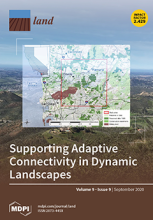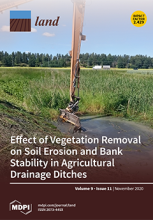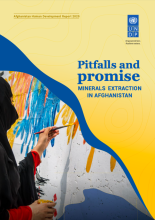/ library resources
Showing items 1 through 9 of 24.Mapping the characteristics and extent of environmental conflicts related to land use is important for developing regionally specific policies.
The increasing role of the tourism industry in the global economy and the growing competition makes it necessary to ensure constant performance and continually improve quality.
EXECUTIVE SUMMARY: In July 2017, Democratic Party candidate Khaltmaa Battulga was elected Mongolia’s new president with 50.61% of the vote, defeating his rival Miyegombo Enkhbold from the ruling Mongolian People’s Party (MPP) who received 41.16% of the vote.
Soil erosion determines landforms, soil formation and distribution, soil fertility, and land degradation processes. In arid and semiarid ecosystems, soil erosion is a key process to understand, foresee, and prevent desertification.
The authors would like to correct the following section of this paper [...]
This article analyzes the heritage construction process or “heritagization” of Las Médulas gold mines, a prime example of how Spain’s mining heritage has been reused for tourism purposes.
Nowadays, urban sprawl, urban densification, housing shortages, and land scarcity are some problems that intervene in the practice of urban planning. Those specific problems are currently more than ever emergent because they imply the notion of spatial justice and socio-spatial inequalities.
The extractive industry can be an important source of human development, economic growth, government revenues and foreign investments.
This handbook contains basic information needed by indigenous peoples to be able to exercise their right to FPIC in the face of mining activities affecting their communities.
Paginering
Land Library Search
Through our robust search engine, you can search for any item of the over 73,000 highly curated resources in the Land Library.
If you would like to find an overview of what is possible, feel free to peruse the Search Guide.





